I think our discussion in this section is entitled with a question mark (?) and it is not a statement.
In Indonesia, we have a joke about corruption, “If you stoned at random, it must be hit a corruptor and even the effect will hit other corruptor.” It shows how complex the corruption problem occurred in Indonesia, because whenever we stoned in any old way, it will hit a corruptor or even will hit ourselves (as the corruptor). Well, I don’t know whether we can find such a joke here in Malaysia.
Furthermore, until this week my name is still written on the list as one of leader candidates of the Commission for Corruption Eradication (KPK), an institution known as a super body because it has an extensive authority to investigate a corruptor. The investigator, in asking the evidence, may tap a telephone, watching the house and even arresting without being claimed.
I have an experience when I did a medical check up in a hospital for getting a bill of health as one of the KPK candidacy’s requirement. I met some pensioners of police, attorney, diplomat, and Auditor Agency/Body. One of accountants, a pensioner from Auditor Agency, was waiting the bill of health from the doctor. I entered the same room with the same intention. A nurse came out from the doctor’s room and she apologized to the old man while telling him that the doctor could not yet give the bill of health, “You need an advance medical check up,” said the nurse.
The nurse went back to the doctor’s room and told the old man to wait for the next instruction. In a short time, the nurse came out back from the doctor’s room, but at that time she took an envelope and called my name, “You are healthy and have the right to take a bill of health,” she said. The old man was only smiling at me.
I remember the day before; someone asked the old man’s motivation to be enlisted as a candidate of KPK leader. “Well, it’s just for fun because I don’t feel comfortable of being unemployed after retired,” he said. Isn’t that crazy? Taking a position for putting his life on the line to face the corruptor is only for fun?
A friend, an activist from an NGO who suggested me to come after the candidacy, knew that the old man had not get the bill of health yet and said, “Sir, you’ve better enjoy your pension time. Don’t you’re your arms against the young if you are unhealthy,” while he left the old man who was completely dazed in the hospital waiting room.
The above experiences show that if we wanted to eradicate corruption, as one part of Good Governance, we need a proper human resource, not only for fun or even only for the job of pensioners
According to Professor Dr. Sofian Effendi, a former head of Gajah Mada University, Yogyakarta, there are three main pillars that supports the ability of a nation to carry out good governance, namely government (the state), civil society, and market or business scope. The implementation of good governance can be achieved only if the three elements have equivalent and synergic in its networks and interaction in applying the authority of politic, economic, and administration.
Usually, such interaction and partnership may favorably develop if there are trust, transparency, participation, and clear and fix regulation. The healthy good governance also will develop safely under the leadership, which has authority and clear vision.
Good Governance is related to a good method for a nation to distribute its power and manage its resources and other society’s problem. In its concept, good governance contains the elements of democratic, equitable or fair, transparent, rule of law, partisipative, and partnership. The exact definition is formulated by the International Institute of Administrative Sciences (IIAS); the process whereby elements in society wield power and authority, and influence and enact policies and decisions public life, economic and social development.
Up till now, the government has dominant power in implementing the authority of politic, economic, and administration. It is difficult to count on consciously and voluntarily will change and manifest to be an effective part of good governance. Therefore, the development of good governance in the future has to be done by external force from outside the bureaucracy or government, namely by using civil society to extend participation from various citizens in implementing the administration.
Other external power that can “force” the appearance of good governance is business. There is a collusive relation between business and government that has been developed and it should be changed to be more equitable and open relation.
Other prerequisite that needs to achieve good governance is the press freedom. Based on the research collections from various international experts that issued by The World Bank Institute in a book entitled The Right To Tell: The Role of Mass Media in Economic Development, the preface quotes of the World Bank President, James D. Wolfensohn, stated as follows:
“More than 1.2 billion people in the world live in the cost of less than one dollar per day. And many of these poor people are not only suffering from the lack of food and clothing, but also do not have voices in the process of decision making as a regard of their life. Moreover, corruption and the weak of administration are gnawing the effectiveness of other country’s assistance. Of course, there is an improvement of the poverty problem, but development is a complex problem that covers various activities in many aspects. A prominent prerequisite in developing effective strategy is using knowledge transmission and transparency efficiently.
To decrease the poverty, we have to set information access freely and improve the information quality. People who have better information will have more power to make a better choice.
Based on the above reasons, I could say that the press freedom is not luxurious. This is the core of a fair development. Mass media can expose corruption. Press can watch the public policy by watching government policy. Mass media allow people to express their various opinions about government and reformation, and help to create a consensus to arrange the change management. Such press will help the market performance for being more healthy, starting from a small scale activities of vegetable trading in Indonesia up to the foreign exchange trading in a global and capital market in London and New York. Press can facilitate trading, distribute ideas and innovations by passing through the country’s border. We have also seen that mass media has an important role in developing human, spreading education and health information to remote villages starting from Uganda to Nicaragua.”
Roumeen Islam, the book editor, concludes the workshop as follows:
“Clearly, as an important supplier of information, it is more possible for mass media to play a role in promoting a good economic performance if it is compiled with three requirements, namely the mass media is independence, give qualified information, and has a wide distribution. That is to say when mass media is able to decrease the nature trend of asymmetric information between the administration and public, which has to be served, and also between private entities. Such media industry will improve the business accountability and government through monitoring and forming reputation and pushing consumer ability at once in making a qualified decision.”
Consequently, if all the above requirements are already fulfilled include in Malaysia, the title in the above question can be answered immediately. Is the Ideal of Good Governance Achievable? This is what we hope and also what people hope in this world.
Jakarta, 31 Juli 2007
Ahmad Taufik
Journalist of Tempo Magazine, Indonesia
For the International Conference on “democratisation and Good Governance in the Malaysian Public Sector.” 13-14 August 2007 at Kuala Lumpur, Malaysia.Sources :
1. Membangun Good Governance : Tugas Kita Bersama, paper Prof.Dr. Sofian Effendi, 26 Desember 2005
2. The Right To Tell: The Role of Mass Media in Economic Development, World Bank, 2002
3. Pledoi Bambang Harymurti, Wartawan Menggugat, 16 Agustus 2004.
Tiket Bis
10 tahun yang lalu








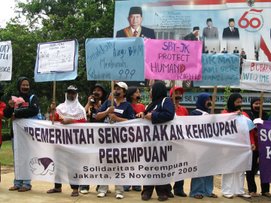
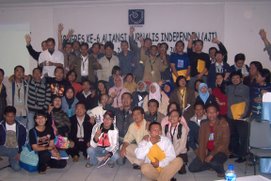




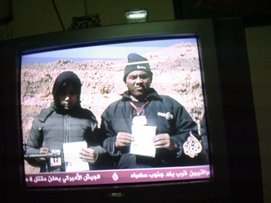

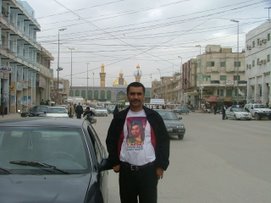
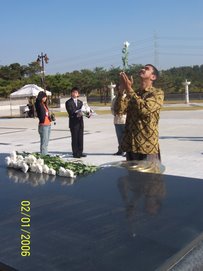
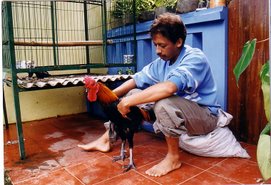
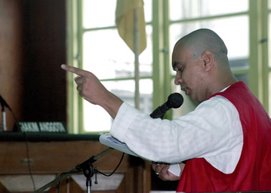
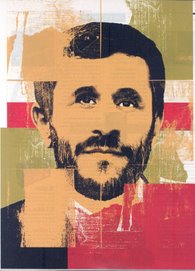
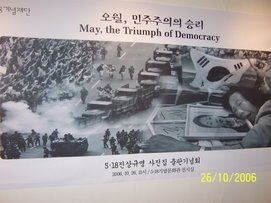
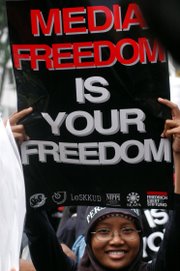
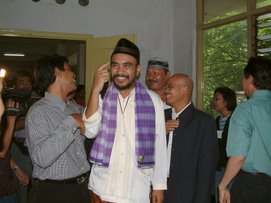



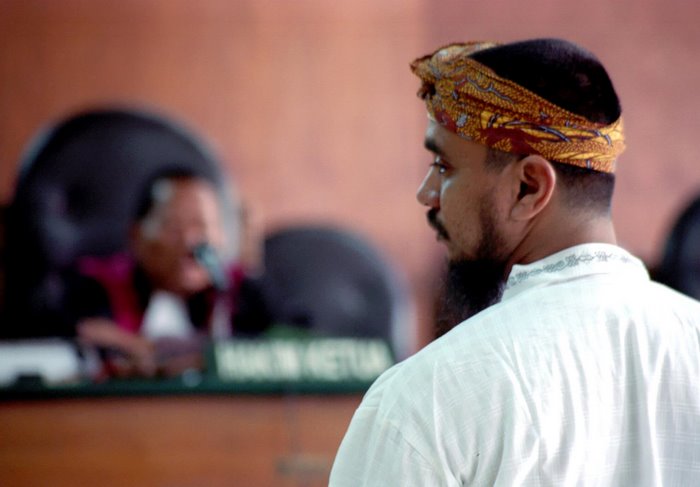

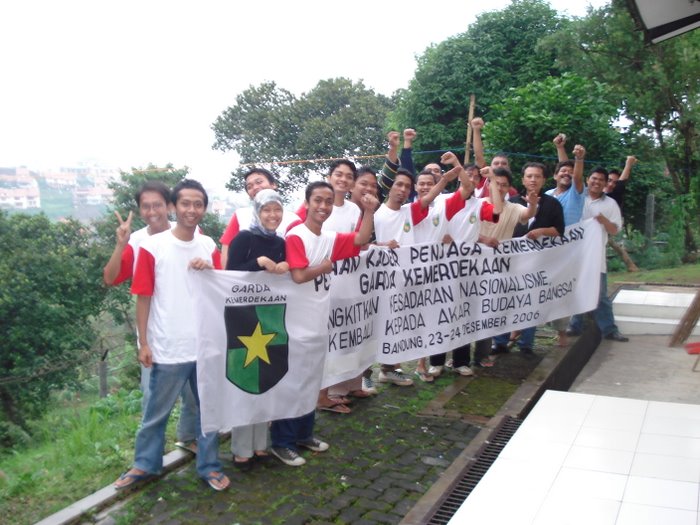
Tidak ada komentar:
Posting Komentar